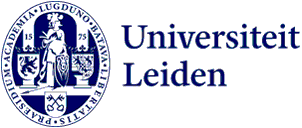
Ethical lobbying is a skill that can be learned: discover how at the Night of the Lobbyist
How ethical are lobbyists? On the Night of the Lobbyist on 23 January, academics and practitioners will come together to discuss lobbying and democracy. We asked associate professor of public administration Toon Kerkhoff five questions about the world of lobbying and integrity.
Many lobbyists have a background in public administration. How do you train students to become ethical lobbyists?
‘We focus on good governance in all our bachelor’s and master's degree programmes – actually, it’s the cornerstone of public administration. Students learn how to navigate between different players with often conflicting wishes and interests. You see this with lobbyists too: they have to balance wishes and ideas to achieve the best outcome.
‘Integrity also means considering the wishes and interests of other parties and finding the best possible solution. So you can learn integrity by examining and weighing up different perspectives.
‘You also have to understand the other players in the game. What do citizens, political parties and parliamentary groups want? How do you find common ground? What are the legal requirements and what are the economic implications of this? Courses such as ethics or public management teach students about ethical conduct and the skills needed to be a good leader.’
How important is the role of lobbyists in our democracy?
‘Lobbyists are crucial to our democracy in the Netherlands because the political and administrative landscape is relatively horizontal. It takes a lot of interaction between politics and society to keep things running. This depends on private organisations, foundations, interest groups and grassroots initiatives. Lobbyists act as bridges between businesses, citizens and politicians. In fact, they often connect these worlds.’
Lobbyists often have a negative image. Why do you think that is?
‘It is inherent to the term “lobbyist”. If we refer to them as advocates, for example, it already sounds different to me. Lobbyists represent interests and not always for personal gain. This strongly resembles the polder model: weighing options, compromising to achieve the best possible outcome.
‘There’s a misconception that lobbying is solely the domain of large corporations. In reality, advocacy groups also represent shopkeepers’ associations or pet owners. Either way, these are often all legitimate interests that deserve a voice.’

Research in public administration often focuses on political integrity. How does academia contribute to making politicians and civil servants more ethical?
‘We study what people understand integrity to be. Everyone has a different idea and feeling of what it is. For example, most Dutch people view US campaign funding as unethical, while the average American seem to have no issue with this. Who is to say who is right? Research shows that integrity isn’t universal. This helps us understand other people’s viewpoints and highlights the need for tailored approaches to improve integrity.
‘Another example of relevant research is that on training civil servants. After the child benefits scandal, the coalition agreement included a pledge to improve civil servant training. To put it simply, a stronger moral compass is needed. Civil servants can also learn to have integrity but there’s more than one way to skin a cat. Our research is exploring how to train civil servants. What are the current practices? What are the origins of these systems and practices? And how do other countries approach this?’
The Night of the Lobbyist is on 23 January. What can visitors expect and why should they attend?
‘The university is organising this event with the Public Affairs Academy. It’s an opportunity for lobbyists, politicians, civil servants and academics to come together and will offer a valuable glimpse into the workings of democracy in the Netherlands. The complexity of the political and administrative landscape will be shown from different perspectives.
‘Together with Leonie Heres (an associate professor at VU Amsterdam and Professor by Special Appointment in Integrity of Local Government at Erasmus University Rotterdam), I’ll be leading a discussion on integrity. We’ll be examining what it is and why it differs for politicians, civil servants and citizens, and what lessons we can learn.
‘We’ll also look to history to understand how what was once seen as integrity no longer may be now. And what that teaches us about integrity. And finally, we’ll discuss how to be an ethical advocate – because ethical lobbying is a skill that can and should be learned.’
Toon Kerkhoff is Associate Professor of Public Administration. His work focuses on historical approaches to public administration and the topics of corruption, integrity, public value(s) and public sector and civil service reform. He currently serves as the Educational Director of the Institute of Public Administration.
